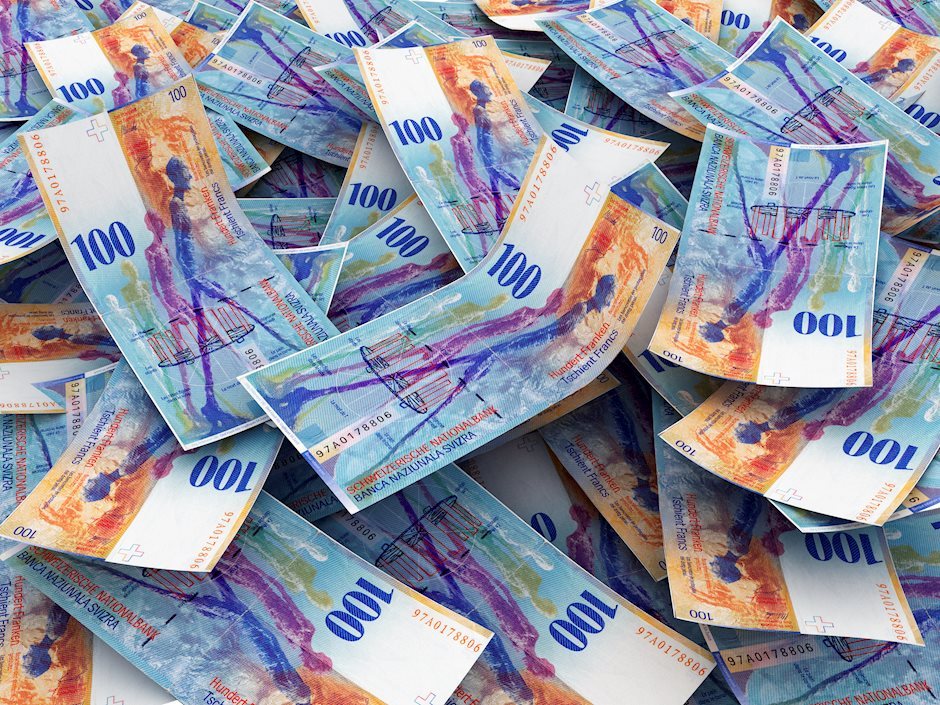USD/CHF seems to extend its losses to 0.8500 due to safe-haven flows
- USD/CHF may continue its losing streak despite an improved US Dollar.
- The Swiss Franc may advance further due to safe-haven flows amid a lack of truce agreement between Israel and Hamas.
- The Greenback holds gains due to market caution ahead of Fed Chair Powell’s speech at the Jackson Hole Symposium.

USD/CHF remains tepid around 0.8520 during the Asian session on Thursday, with a negative bias to continue its losing streak for the fifth successive day. The Swiss Franc (CHF) might gain support from safe-haven flows due to the ongoing stalemate in achieving a truce agreement between Israel and Hamas, which leaves the door open for a broader conflict in the Middle East.
On Wednesday, US President Joe Biden urged Israeli Prime Minister Benjamin Netanyahu to prioritize securing a truce in Gaza and the release of hostages, but both Israel and Hamas remained firm on their respective demands. The conversation, which also included Vice President Kamala Harris, occurred after Palestinian health officials reported that at least 50 Palestinians had been killed by Israeli airstrikes within 24 hours, according to a Reuters report.
Commerzbank FX Analyst Michael Pfister observed that recent market turbulence spurred a strong demand for safety, which positively impacted the Swiss franc (CHF). However, Pfister anticipates moderate CHF weakness in the coming months, predicting that the Swiss National Bank (SNB) is likely to lower interest rates further.
Read the full article: CHF: Caught between the SNB and the flight into safe havens – Commerzbank
The US Dollar (USD) edges higher due to improved Treasury yields, which could be attributed to the market caution ahead of the Federal Reserve (Fed) Chair Jerome Powell’s keynote speech at the Jackson Hole Annual Symposium scheduled on Friday.
Additionally, FOMC Minutes for July’s policy meeting indicated that most Fed officials agreed last month that they would likely cut their benchmark interest rate at the upcoming meeting in September as long as inflation continued to cool. Furthermore, traders await Fed Chair Jerome Powell's upcoming speech at Jackson Hole on Friday.
Swiss Franc FAQs
The Swiss Franc (CHF) is Switzerland’s official currency. It is among the top ten most traded currencies globally, reaching volumes that well exceed the size of the Swiss economy. Its value is determined by the broad market sentiment, the country’s economic health or action taken by the Swiss National Bank (SNB), among other factors. Between 2011 and 2015, the Swiss Franc was pegged to the Euro (EUR). The peg was abruptly removed, resulting in a more than 20% increase in the Franc’s value, causing a turmoil in markets. Even though the peg isn’t in force anymore, CHF fortunes tend to be highly correlated with the Euro ones due to the high dependency of the Swiss economy on the neighboring Eurozone.
The Swiss Franc (CHF) is considered a safe-haven asset, or a currency that investors tend to buy in times of market stress. This is due to the perceived status of Switzerland in the world: a stable economy, a strong export sector, big central bank reserves or a longstanding political stance towards neutrality in global conflicts make the country’s currency a good choice for investors fleeing from risks. Turbulent times are likely to strengthen CHF value against other currencies that are seen as more risky to invest in.
The Swiss National Bank (SNB) meets four times a year – once every quarter, less than other major central banks – to decide on monetary policy. The bank aims for an annual inflation rate of less than 2%. When inflation is above target or forecasted to be above target in the foreseeable future, the bank will attempt to tame price growth by raising its policy rate. Higher interest rates are generally positive for the Swiss Franc (CHF) as they lead to higher yields, making the country a more attractive place for investors. On the contrary, lower interest rates tend to weaken CHF.
Macroeconomic data releases in Switzerland are key to assessing the state of the economy and can impact the Swiss Franc’s (CHF) valuation. The Swiss economy is broadly stable, but any sudden change in economic growth, inflation, current account or the central bank’s currency reserves have the potential to trigger moves in CHF. Generally, high economic growth, low unemployment and high confidence are good for CHF. Conversely, if economic data points to weakening momentum, CHF is likely to depreciate.
As a small and open economy, Switzerland is heavily dependent on the health of the neighboring Eurozone economies. The broader European Union is Switzerland’s main economic partner and a key political ally, so macroeconomic and monetary policy stability in the Eurozone is essential for Switzerland and, thus, for the Swiss Franc (CHF). With such dependency, some models suggest that the correlation between the fortunes of the Euro (EUR) and the CHF is more than 90%, or close to perfect.
Author

Akhtar Faruqui
FXStreet
Akhtar Faruqui is a Forex Analyst based in New Delhi, India. With a keen eye for market trends and a passion for dissecting complex financial dynamics, he is dedicated to delivering accurate and insightful Forex news and analysis.

















